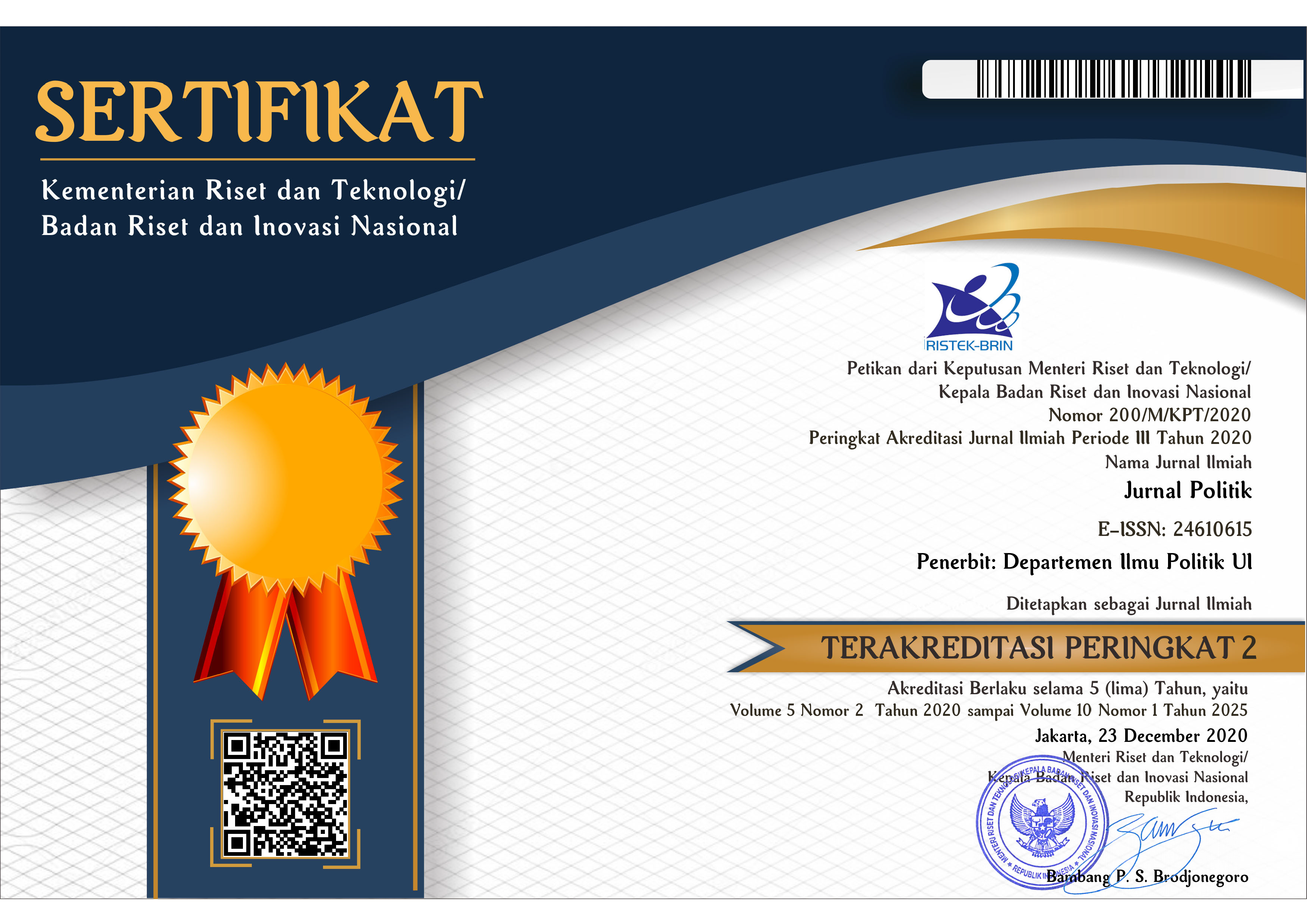Abstract
This article elaborates the e-voting adoption in village leader elections held in Musi Rawas Regency, South Sumatera, during the period of 2013 to early 2015. This paper aims at answering the question of why the government of Musi Rawas has adopted e-voting in the village leader elections. More specifically, this paper aims at identifying the motives underlying the policy to adopt e-voting in village leader elections in Musi Rawas. This article is based on the field research held between February and March, 2015. The research employs the qualitative approach. Data is collected through in-depth interview, observation, and news collected from mass media. Interviews were conducted with Mayors of Musi Rawas and the other informants that know the problems. Besides that, the research also conducted observation in three villages which held village leader elections with e-voting: Wonokerto Village, Pelawe Village, and BTS Ulu Village. Observation is the mechanism to compare between the information from interview with the empirical practice of e-voting. This article finds out that the first motive of the adoption of e-voting in the village leader election is to reduce violations of procedure. The second motive is to make the elections more efficient in term of time and money and to make the voters easier to vote. Nevertheless, the Government of Musi Rawas needs to pay attention to the technical aspect in order to make the village leader election is conducted in line with the ideal principle of election.
Recommended Citation
Darmawan, Ikhsan and Nurhandjati, Nurul
(2016)
"Why Adopt E-voting? Study on Village Leader Elections in Musi Rawas, South Sumatera,"
Jurnal Politik: Vol. 1:
Iss.
2, Article 1.
DOI: 10.7454/jp.v1i2.1120
Available at:
https://scholarhub.ui.ac.id/politik/vol1/iss2/1
Included in
Comparative Politics Commons, Other Political Science Commons, Science and Technology Policy Commons


